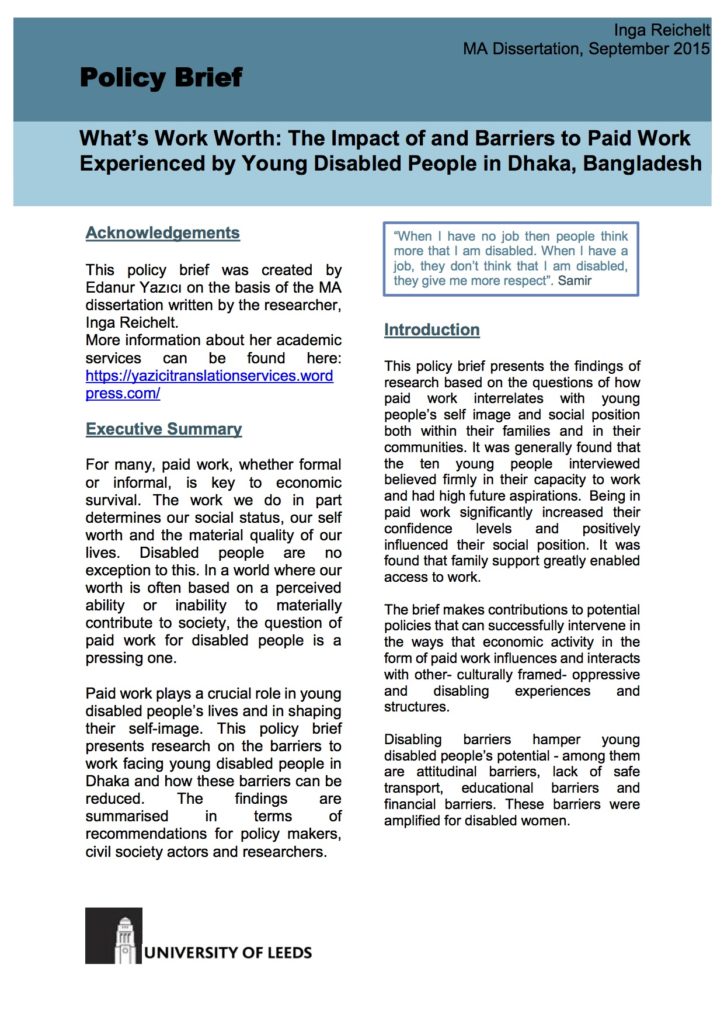In many countries, employment doesn’t always seem to be an urgent issue for disabled people. But in Bangladesh, which has undergone huge social and economic change over the past thirty-plus years, it most certainly is. The economy is changing for everyone, and young disabled people want to be part of it.
“When I have a job, they don’t think that I’m disabled: they give me more respect.” — Samir
Recent research from Inga Reichelt, based on interviews with disabled people, is impressive and throws light upon this.
As I’ve shared before, disabled people are getting out of charity and into work, the infamous garments sector in Bangladesh is, surprisingly, an employer of disabled people, and there are extraordinary cases of disabled people working like Mosharrof, mechanic and entrepreneur.
Reichelt’s research shows the role work plays in transforming disabled people’s lives, and how they are striving towards it.

Reichelt and Yazıcı policy brief. Also available in Bangla.
The brief is based on practical experiences so good at showing real barriers or opportunities. Support of family and transportation come out as vital, and there’re clear examples on the differences between young men and women with disabilities. Once you get to work the problems don’t stop either – both old difficulties and new barriers come around, along with your changing social position.
If you’re interested in employment in Bangladesh or of disabled people in Bangladesh, this brief is worth looking at. You can also contact Reichelt directly at I.J.Reichelt@leeds.ac.uk.